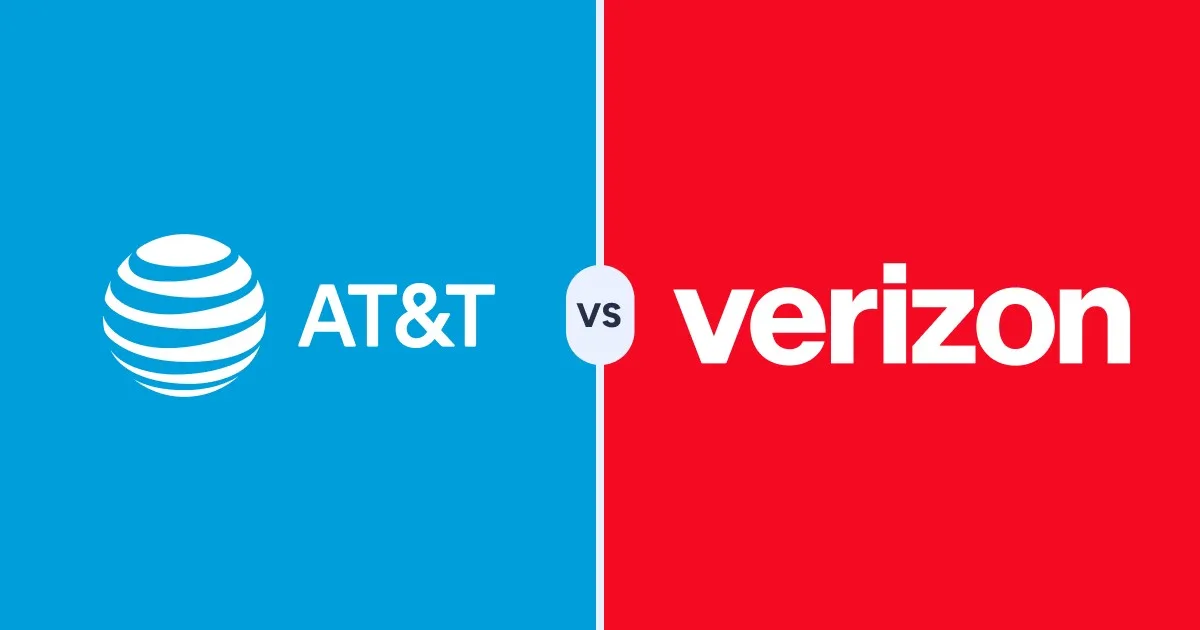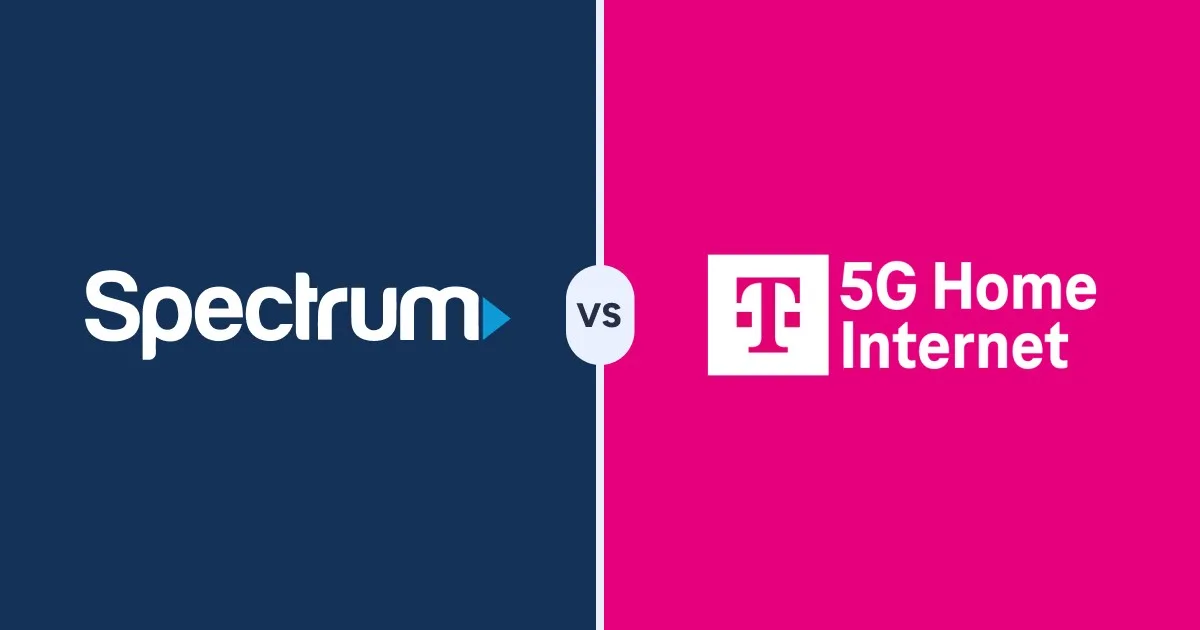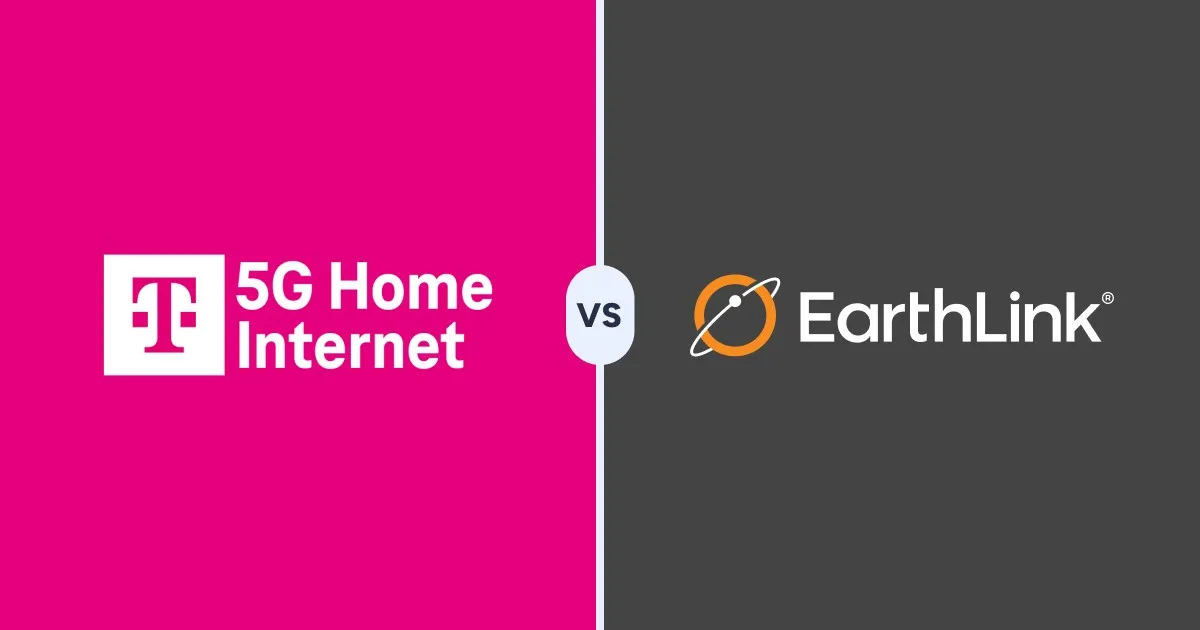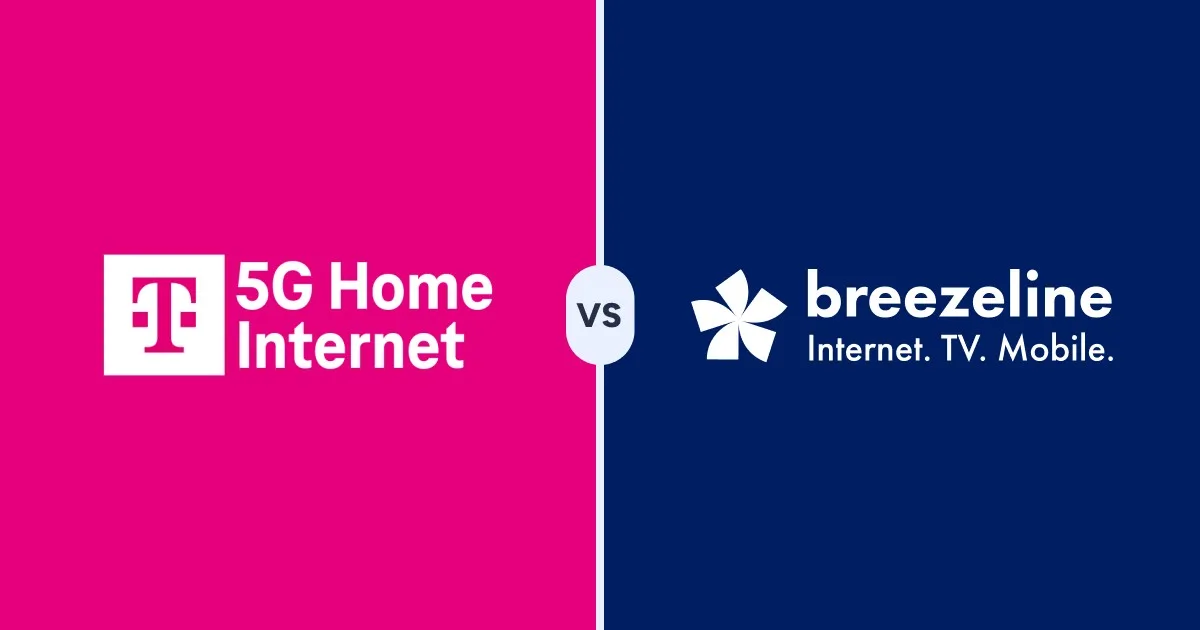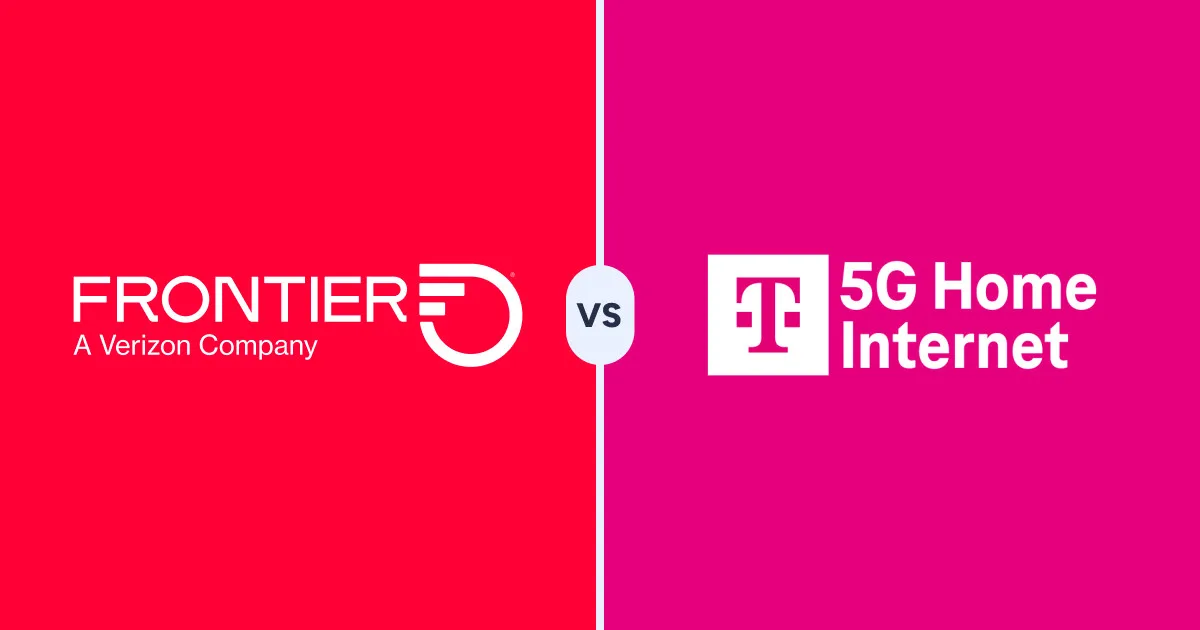Xfinity vs. Spectrum
Xfinity and Spectrum are the nation’s biggest cable internet providers, but which one offers the best plans for you?
Nov 17, 2025 | Share
Provider Comparisons (Versus)
-
Best for speed
- Customer rating: 3.9
- Starting price: $40/mo.*
for 12 mos. - Speed range: Up to 300–2,000Mbps
- Internet type: Cable, fiber
- Data cap: No data cap
- Contract: No contract
-
Best for availability
- Customer rating: 3.7
- Starting price: $30/mo.† for 1 year
- Speed range: Up to 100–2,000Mbps (wireless speeds may vary)
- Internet type: Cable, fiber
- Data cap: No data cap
- Contract: No contract
Data as of 11/14/2025. Offers and availability may vary by location and are subject to change.
* See Xfinity disclaimers.
† See Spectrum disclaimers.
Compare Xfinity and Spectrum head to head
Xfinity and Spectrum are both cable internet providers, so they’re pretty similar. You can’t go wrong with either one. Neither provider has data caps, but Spectrum’s introductory prices are slightly higher than Xfinity’s.
We’ll dig more into the details of each so you can decide which service is best for your needs.
Pros and cons: Xfinity vs. Spectrum
 Pros:
Pros:
- Wide availability
- Reliable connections
- No term contracts
 Cons:
Cons:
- Limited availability on fastest plans
- Price hikes after 1 or 5 years
 Pros:
Pros:
- Good performance
- Simplified list of plans
- No modem rental fee
 Cons:
Cons:
- Price hikes after 12 mos.
- Extra charge for WiFi (Advantage only)
Is Xfinity or Spectrum available where you live?
Enter your zip code below to see what services and plans are provided in your area.
In this comparison:
Plans and pricing | Extra fees | Customer ratings | Bundles | Internet connection types | Data caps | Contracts | Installation | Availability
In this comparison:
Plans and pricing: Xfinity vs. Spectrum
Xfinity has a wider variety of plans than Spectrum. It also has the fastest plan of the two, with speeds of up to 2,000Mbps. Xfinity also offers fiber internet, but you’re lucky if you can find it.
Xfinity plans and pricing
| Package | Starting price | Speed |
|---|---|---|
| 300 Mbps | $40/mo.* for 12 mos. | 300Mbps |
| 500 Mbps | $55/mo.* for 12 mos. | 500Mbps |
| 1 Gig | $70/mo.* for 12 mos. | 1,000Mbps |
| 1.2 Gig | $100/mo.* for 12 mos. | 1,200Mbps |
| 2 Gig | $100/mo.* for 12 mos. | 2,000Mbps |
Data as of 09/22/2025. Offers and availability may vary by location and are subject to change. See disclaimers.
Overall, Xfinity appears to have a better megabit-per-dollar value than Spectrum. The problem is Xfinity’s prices increase after the first or fifth year, depending on the plan and your location.
Spectrum plans and pricing
| Package | Price | Speed |
|---|---|---|
| Spectrum Internet® Advantage | $30/mo.* for 1 year | Up to 100Mbps (wireless speeds may vary) |
| Spectrum Internet® Premier | $50/mo.* for 1 year | Up to 500Mbps (wireless speeds may vary) |
| Spectrum Internet® Gig | $70/mo.*† for 1 year | Up to 1,000Mbps (wireless speeds may vary) |
| Spectrum Internet® 2 Gig | $90/mo.*† for 1 year | Up to 2,000Mbps (wireless speeds may vary) |
Data as of 11/14/2025. Offers and availability may vary by location and are subject to change. See disclaimers.
Spectrum keeps the choices simple, and that’s what we like. There’s no confusion about various plans at different prices, all offering the same maximum speed. Plus, Spectrum has extra perks like unlimited data and a rent-free modem or gateway.
What you never hear about is Spectrum’s fiber internet. It’s a real thing and is only available in “green” markets not claimed by other fiber internet providers, like in new neighborhoods. You’ll see the same four main plans, only your fiber upload and download speeds are identical, unlike Spectrum’s cable internet.

Deals and promotions: Xfinity vs. Spectrum
- Enjoy a 5-year price guarantee on a 300Mbps internet plan for $40 per month, through Feb. 22
- Earn up to $500 per year by referring friends to Xfinity
- Get automatic enrollment in Xfinity Rewards for exclusive access to merch, free TV and movies, and rotating weekly offers
- Get up to four months free when you bundle mobile, TV, home phone, and internet services from Spectrum
- Get ten streaming services included when you add Spectrum TV® Select to your internet plan
- Get one line of Spectrum Mobile® Unlimited for a year with a qualifying home internet plan
Extra fees: Xfinity vs. Spectrum
Data as of 11/14/2025. Offers and availability may vary by location and are subject to change.
Seeing as neither Xfinity or Spectrum impose data caps, the biggest differences between these two providers are the obvious installation and equipment fee comparisons.
Customer ratings: Xfinity vs. Spectrum
|
|
| |
|---|---|---|
| Overall rating | 3.9/5 | 3.7/5 |
| Reliability | 3.9/5 | 3.7/5 |
| Customer service | 3.7/5 | 3.7/5 |
| Speed | 4.0/5 | 3.9/5 |
| Price | 3.5/5 | 3.3/5 |
* Ratings based on a five (5) point system used in our annual customer satisfaction survey.
Both Xfinity and Spectrum received good feedback in our annual customer satisfaction survey, but Xfinity scored higher in all categories except customer service. Xfinity’s biggest win was receiving the highest speed ratings for the second year in a row, even besting several fiber providers. According to the survey, 93% of Xfinity customers said their internet speeds “always” or “usually” meet their needs.
Xfinity customers also gave higher price satisfaction ratings. Xfinity tends to pack in a lot of speed for the money, while Spectrum plans come with unlimited data.
Looking for the best-rated provider you can get?
Enter your zip code below to see if Xfinity or Spectrum are in your area.
Best TV and internet bundles
| Package | Internet speed | TV channels | Price | Details |
|---|---|---|---|---|
| Xfinity 300 Mbps + Choice TV | Up to 300Mbps | 10+ | Starting at $55/mo.* | View Plans |
| Xfinity 1 Gig + Popular TV | Up to 1,000Mbps | 125+ | Starting at $120/mo.* | View Plans |
| Spectrum Internet Premier + TV Select Signature | Up to 500Mbps (wireless speeds may vary) | 150+ | $130/mo.† for 24 mos. | View Plans |
| Spectrum Internet Gig + TV Select Plus | Up to 1,000Mbps (wireless speeds may vary) | 160+ | $150/mo.† for 24 mos. | View Plans |
Data as of 11/14/2025. Offers and availability may vary by location and are subject to change. See disclaimers.
The Xfinity 1 Gig + Popular TV combo includes a decent download speed and 125+ channels for $120 per month. There are other bundles giving you even more channels, too—up to 185+ through the Ultimate TV service.
You can pair Spectrum Internet with its TV and Mobile services. The monthly discount and promo duration depend on the number of services you combine: 12 months for internet only, 24 months for internet and one other service, or 36 months for all three. After the promotional period ends, your pricing reverts to higher standard rates. Spectrum TV includes a decent amount of streaming apps with their service, but the exact services you’ll have access to vary from plan to plan. You can get Disney+ basic with ads, Hulu, Peacock Premium, and more included at no extra cost
Broadcast TV surcharges are not included in TV pricing, which covers the fees imposed by broadcast TV stations on cable companies. Xfinity’s surcharge fee is $17 per month.
Internet types: Xfinity vs. Spectrum
| Internet type | Details | |
|---|---|---|
|
| Cable | View Plans |
|
| Cable, fiber | View Plans |
Xfinity and Spectrum are mainly cable internet providers. Coaxial cable has been around for decades and is installed in most homes. It relies on unused cable TV channels to deliver internet, so it’s a bit more limited in speed than fiber.
Xfinity’s maximum residential cable speed is 2,000Mbps, while Spectrum maxes out at 1,000Mbps. If you don’t need a connection faster than a gigabit, then the plans offered by these two companies should suffice.
Spectrum also has some fiber-to-the-home internet in “green” markets where other fiber internet providers haven’t claimed, like in new neighborhoods. Fiber is more reliable than cable and supports symmetrical download and upload speeds—it’s used in the backbone of the internet, after all. Both providers offer fiber to enterprise customers.
Data caps: Xfinity vs. Spectrum
| Data Cap | Details | |
|---|---|---|
|
| View Plans | |
|
| View Plans |
Both Xfinity and Spectrum offer unlimited data across all plans, so you won’t have to worry about data caps or extra fees.
Contracts: Xfinity vs. Spectrum
| Contract length | Details | |
|---|---|---|
|
| View Plans | |
|
| View Plans |
Spectrum does not have contracts. Instead, Spectrum applies a temporary promotional rate upon activation. There are no cancellation penalties.
Xfinity also applies a temporary promotional rate upon activation, locking prices for up to five years. But you must enroll in autopay and paperless billing to keep the discounted price during that time—otherwise, add $10 to the monthly bill. Afterward, your price can increase significantly, so keep an eye on your price guarantee end date.
Installation: Xfinity vs. Spectrum
| Installation options | Details | |
|---|---|---|
|
| View Plans | |
|
| View Plans |
Data as of 11/14/2025. Offers and availability may vary by location and are subject to change.
If you’re switching services and don’t need to relocate the modem, the self-installation kits are your cheaper option. Take this route if you think you can handle the setup process independently.
Of the two, Spectrum still performs pro installations, while Xfinity’s Self Install Plus option has a technician deliver your Getting Started Kit and verify that all connections to your home are working correctly.
Availability: Xfinity vs. Spectrum
Xfinity and Spectrum command the largest chunks of the cable internet market in the US, but you probably won’t see them both where you live. There are some areas where their services overlap, like in Massachusetts, Florida, and Georgia, but they mostly border each other mainly from Texas and going east.
Xfinity has a slightly larger portion of the cable internet market than Spectrum, but its plan naming and pricing are different across regions. Xfinity’s market primarily resides in Maine, Virginia; Washington, DC; Pennsylvania, Tennessee, Georgia (mainly the Atlanta area), Florida, Indiana, and California. A good chunk of the coverage also revolves around specific cities rather than statewide coverage, including Seattle, Portland, Tucson, Las Vegas, Houston, and Chicago.
Most of Spectrum’s market resides in North Carolina, South Carolina, Kentucky, Ohio, New York, and Maine. There are scattered chunks of coverage in California, Texas, Florida, and several other states. Overall, Spectrum commands a decent market in the Eastern and Central time zones. Its coverage is more regional than what you’ll get with Xfinity.
Ready to switch to Xfinity or Spectrum?
Enter your zip code below to see if Xfinity or Spectrum are available where you live.
Final call: Xfinity vs. Spectrum
You’ll probably never need to compare Xfinity’s plans and prices with Spectrum’s, but if you live in an area where their cable internet overlaps, Xfinity is your better choice based on our latest customer satisfaction survey. The readers have spoken, and Xfinity outranks Spectrum in every category, including speed.
The decision you make ultimately depends on the speed you need, what services you have access to and the amount of data you require to burn through each month.
Methodology
Our HighSpeedInternet.com editorial team bases our analyses on customer input from our annual customer satisfaction survey, results from our speed test tool, and proprietary internet provider data on speeds and pricing. To strengthen our research, we look closely at provider contracts to get hard-to-find information on price hikes, data caps, and extra fees, and we keep tabs on the latest news reports and online reviews. When applicable, we also rely on our personal experiences testing these services.
More about Xfinity and Spectrum
Amazon disclaimer
Product prices and availability are accurate as of the date/time indicated and are subject to change. Any price and availability information displayed on Amazon.com at the time of purchase will apply to the purchase of this product. HighSpeedInternet.com utilizes paid Amazon links.
CERTAIN CONTENT THAT APPEARS ON THIS SITE COMES FROM AMAZON. THIS CONTENT IS PROVIDED ‘AS IS’ AND IS SUBJECT TO CHANGE OR REMOVAL AT ANY TIME.
Xfinity plans
* For 12 months, no term contract. Restrictions apply. Autopay w/ stored bank account and paperless billing req’d. Taxes and fees extra and subj. to change. Reduced speeds after 30 GB of usage/line. Data thresholds may vary.
Spectrum plans
* Limited time offer; subject to change; new residential customers only (no Spectrum services within past 30 days) and in good standing with Spectrum. Taxes and fees extra in select states. SPECTRUM INTERNET: Standard rates apply after promo period. Additional charge for installation. Speeds based on wired connection. Actual speeds (including wireless) vary and are not guaranteed. Gig capable modem required for Gig speed. For a list of Gig capable modems, visit spectrum.net/modem. Services subject to all applicable service terms and conditions, subject to change. Not available in all areas. Restrictions apply.
† Spectrum Advanced WiFi included in price (Internet Gig only).
Bundles
* Internet: For 24 months. No term contract. Includes $10/mo automatic payments and paperless billing discount. Taxes and equipment not included. TV: No term contract. Broadcast TV fee and regional sports fee extra; price subj to change. Taxes and equipment not included.Pricing and plan names may vary by region.
† Spectrum TV and Internet bundles
This is a 24 month introductory rate and does not require a contract. The post-introductory rate is $75 and subject to change. Discount requires that Spectrum TV or Spectrum Mobile products in bundle are maintained. Modem and Advanced WiFi router included.Limited time offer; subject to change; new residential customers only (no Spectrum services within past 30 days) and in good standing with Spectrum.
SPECTRUM TV: Price and surcharges subject to change. Streaming apps included in qualifying Spectrum TV plans for residential customers only. TV equipment may be required, charges apply. Channel availability based on level of service and not all channels available in all markets or locations. All trademarks are the property of their respective owners. Services subject to all applicable service terms and conditions, subject to change. Services not available in all areas. Restrictions apply.
Author - Kevin Parrish
Kevin Parrish has more than a decade of experience working as a writer, editor, and product tester. He began writing about computer hardware and soon branched out to other devices and services such as networking equipment, phones and tablets, game consoles, and other internet-connected devices. His work has appeared in Tom’s Hardware, Tom's Guide, Maximum PC, Digital Trends, Android Authority, How-To Geek, Lifewire, and others. At HighSpeedInternet.com, he focuses on network equipment testing and review.
